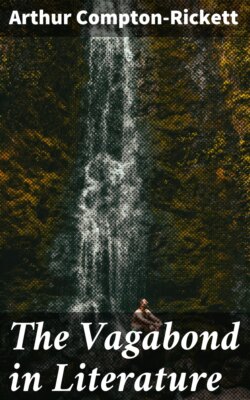Читать книгу The Vagabond in Literature - Arthur Compton-Rickett - Страница 6
На сайте Литреса книга снята с продажи.
II
ОглавлениеTable of Contents
Another note now discovers itself—a passion for the Earth. All these men had a passion for the Earth, an intense joy in the open air. This feeling differs from the Nature-worship of poets like Wordsworth and Shelly. It is less romantic, more realistic. The attitude is not so much that of the devotee as that of the lover. There is nothing mystical or abstract about it. It is direct, personal, intimate. I call it purposely a passion for the Earth rather than a passion for Nature, in order to distinguish it from the pronounced transcendentalism of the romantic poets.
The poet who has expressed most nearly the attitude of these Vagabonds towards Nature—more particularly that of Thoreau, Whitman, Borrow, and Jefferies—is Mr. George Meredith.
Traces of it may be found in Browning with reference to the “old brown earth,” and in William Morris, who exclaimed—
“My love of the earth and the worship of it!”
but Mr. Meredith has given the completest expression to this Earth-worship.
One thinks of Thoreau and Jefferies when reading Melampus—
“With love exceeding a simple love of the things
That glide in grasses and rubble of woody wreck;
Or change their perch on a beat of quivering wings
From branch to branch, only restful to pipe and peck;
Or, bristled, curl at a touch their snouts in a ball;
Or, cast their web between bramble and thorny hook;
The good physician Melampus, loving them all,
Among them walked, as a scholar who reads a book.”
While that ripe oddity, “Juggling Jerry,” would have delighted the “Romany”-loving Borrow.
Indeed the Nature philosophy of Mr. Meredith, with its virile joy in the rich plenitude of Nature and its touch of wildness has more in common with Thoreau, with Jefferies, with Borrow, and with Whitman than with Wordsworth, Coleridge, Shelley, or even with Tennyson—the first of our poets to look upon the Earth with the eyes of the scientist.
